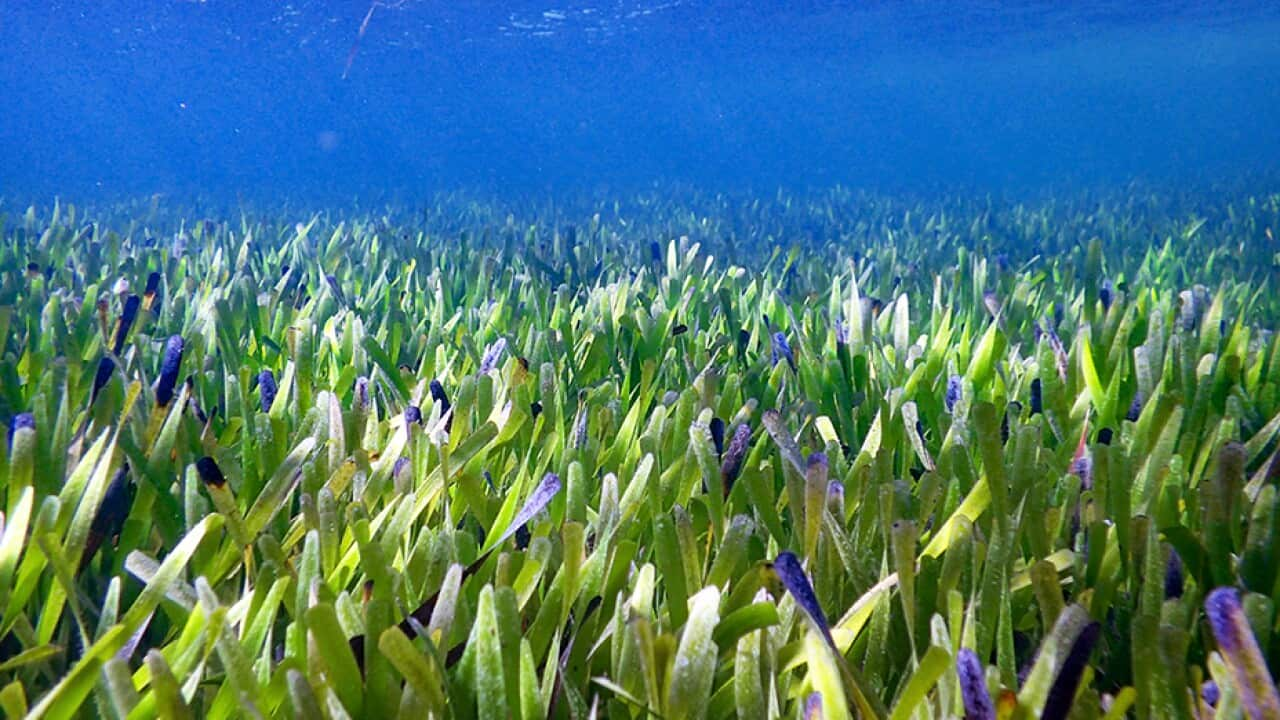Tidal Moon draws on traditional knowledge to harvest sea cucumbers sustainably.Hand-picked, one by one, the marine animal will soon be dried and processed at a brand-new export facility in the West Australian town of Denham.And then they're sent to a Singaporean partner for export across South East Asia
Gathaagudu is home to the planet's largest reserve of seagrass both a food source for marine life and a carbon storage powerhouse. Tidal Moon is leading one of the world's largest seagrass restoration projects. While scouring the seafloor for sea cucumbers, the divers also replant seagrass reserves.
"One of the key things that we're trying to do is keep the carbon captured in the sea floor. So without seagrass restoration, you have these carbon bombs that go off and there's about 40 million tons of CO2 that are at risk in Shark Bay"
Jennifer Verduin, a marine scientist at Perth’s Murdoch University, agrees that the relationship might be “mutually beneficial,” saying sea cucumbers are 'the worms of the ocean.'




